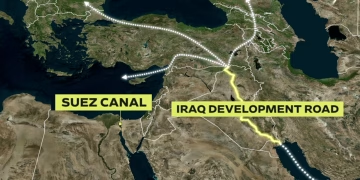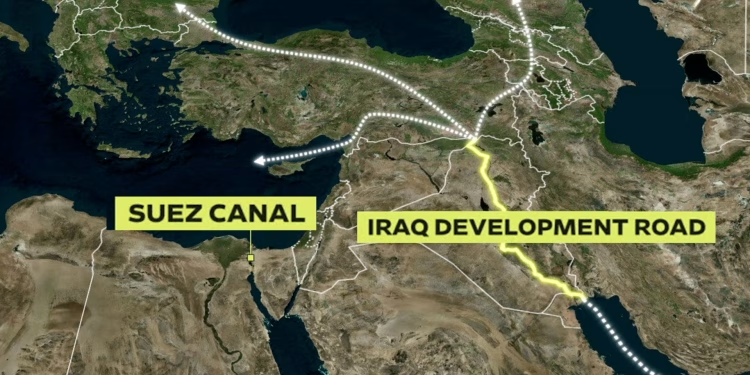By Maria Kalamatas | August 5, 2025
Baghdad, August 5 — No fanfare. No political ceremony. Just a line of trucks pulling away from a customs checkpoint near Zakho at sunrise. That’s how Iraq’s new overland trade corridor began its first real test this week.
“It’s strange — after years of plans and drawings, the road is open, and the paperwork just works,” said Hadi, a driver who crossed into Turkey with a sealed trailer bound for Dubai. “Nobody stopped me. That’s a first.”
A new route, a new rhythm
The so-called “Development Road” is Iraq’s bid to turn its territory into a freight bridge between Europe and the Gulf. Now connected to the international TIR customs system, the corridor allows trucks to travel across borders without having to unload or undergo lengthy inspections.
This week, several transport companies ran full trips between Turkey and the UAE. According to one logistics officer based in Basra, the fastest round trip took just over ten days — a journey that usually takes twice that by sea.
What changed?
Before this week, a truck moving from Europe through Iraq often spent days at each border crossing. Documents had to be verified, containers opened, sometimes inspected twice. Now, with the TIR system in place, the process is smoother.
“It’s not magic,” said a customs agent near the Syrian frontier. “But it’s efficient. The scanner works, the seals are respected, and nobody touches the goods.”
The change is administrative — but the impact is practical. Less delay means fewer losses, especially for perishables and high-value cargo.
A fragile success
Trucks are moving. But the road ahead isn’t guaranteed.
Security along parts of the route remains fragile. Fuel stations are scarce in the central desert. And while the documents may move fast, human coordination still lags in places.
Still, people in the field aren’t waiting for perfection.
“You can’t wait forever for ideal conditions,” said a freight forwarder based in Amman. “You try the route. If it works, you use it again. If it works five times, it becomes a lane.”
Iraq between worlds
The corridor’s importance isn’t just logistical. It’s symbolic. For a country long associated with conflict and instability, this is a chance to show that it can be something else — a connector, not a gap.
In the words of a port dispatcher in Umm Qasr: “We’ve watched containers go around us for years. Now they go through us. That’s the difference.”























